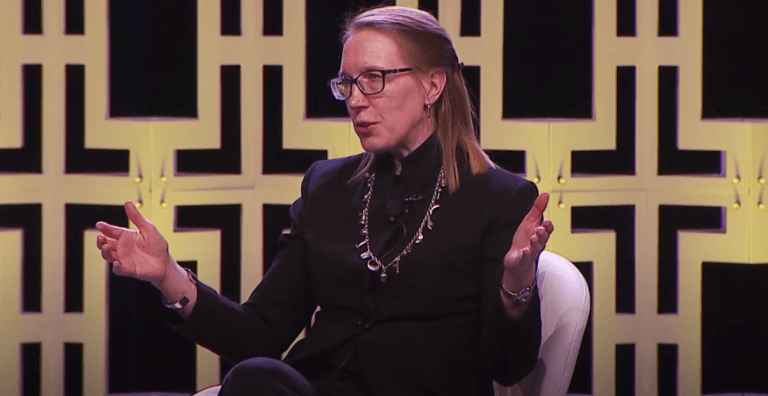On Tuesday (June 14), Hester Peirce, a Commissioner at the U.S. Securities and Exchange Commission (SEC), gave a speech about crypto regulation at an event in Washington, D.C.
Commissioner Peirce’s remarks about crypto were made as part of her speech at an event titled “Regulating the New Crypto Ecosystem: Necessary Regulation or Crippling Future Innovation?”, which was organized by “Regulatory Transparency Project”, a venture of The Federalist Society.
Peirce made it clear right from the start that (1) she was “expressing her own views” and “not necessarily those” of the U.S. SEC or the other Commissioners; and (2) that “this speech is not an endorsement of bitcoin, bitcoin exchange-traded products, or any other crypto-related asset.”
Peirce started her speech by pointing out since in the U.S. “every agency claims to be the regulator,” the crypto industry is “looking to Congress to decide who ought to regulate it.”
She then mentioned the bipartisan crypto legislation introduced last week by Senators Gillibrand and Lummis. According to a press release issued on June 7, “U.S. Senators Kirsten Gillibrand (D-NY), member of the Senate Agriculture Committee, and Cynthia Lummis (R-WY), member of the Senate Banking Committee, introduced the Responsible Financial Innovation Act, landmark bipartisan legislation that will create a complete regulatory framework for digital assets that encourages responsible financial innovation, flexibility, transparency and robust consumer protections while integrating digital assets into existing law.”
As Senator Gillibrand said during a Washington Post event on June 8, this bill proposes that those cryptoassets that look and behave like securities should be regulated by the U.S. SEC and those that are commodities, such as Bitcoin and Ethereum, should fall under the purview of the Commodity Futures Trading Commission (CFTC).
Peirce said that the reason “the people in the crypto industry are celebrating the allocation of certain authorities to the Commodity Futures Trading Commission… instead of the Securities and Exchange Commission” is because there exists “a disappointment that the SEC has not used more proactively the authorities it already has to sensibly regulate crypto.” She understands this frustration, and hopes that the government “can change course and use… existing and any prospective authorities wisely.”
She went on to say:
- “I have communicated my discomfort with the Commission’s behavior to my colleagues and the public, though the results to date seem to be underwhelming: the agency continues to brush off crypto products and services seemingly without consideration for the consequences.“
- “It is time for the Commission to stop denying categorically spot crypto exchange-traded products.“
- “It is time for the Commission to embark on a more productive path to crypto regulation.“
- “Regardless of what one thinks of crypto, it is in both investors’ and the SEC’s interest to take a more productive approach. Using the tools Congress has given us and drawing on public input, we can provide regulatory clarity, facilitate iterative experimentation, and pursue bad actors in the crypto space.“
Last month, during an interview with Protocol, she expressed how she feels about being the nickname “Crypto Mom” by the crypto community:
“Well, on the one hand, I think it’s kind of funny because I don’t have children. And so I always say, ‘Well, I always thought if I had children, I would never know what they would turn out to be like.’ And so indeed, this is certainly the case.
“On the other hand, there are a couple reasons that I push back a little. One, I’m not an advocate for any industry. I think innovation is really important. And I think the regulatory relationship to innovation is very important.
“But I also think it’s important for people not to think about the government in parental terms. Because when you do that, then you sort of think, ‘Oh, I can sit back and, you know, Mom and Dad are gonna take care of me and if something goes wrong, I’m gonna go live in their basement or they’re going to bail me out.’
“This country is about taking responsibility for your actions, making decisions for your own life, but the government is there to help you in the sense that we at the SEC help you get the information you need to make decisions. We’re out there if there’s a fraud. We can go after the fraud. But responsibility still lies with you, the decision-maker.“









